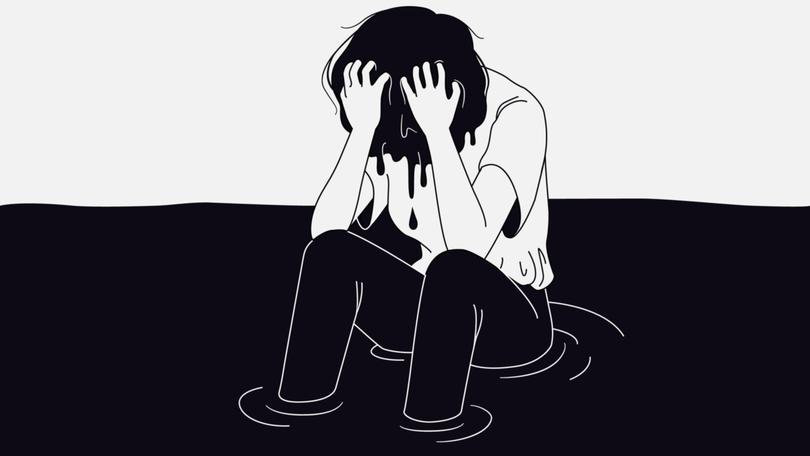JAY HANNA: Mental illness impacts all Australians, cutting across social and economic lines

Following a recent PR tour for the animated film Inside Out 2, which reimagines emotions as cartoon characters, actor Amy Poehler told the Guardian UK that her character Joy seemed to be the predominant emotion she would associate with Australia.
It is not difficult to imagine why a Hollywood celebrity dropping into Sydney and being whisked to the best hotels and restaurants might jump to that conclusion — the sun is out, the skies are blue, and the people are friendly.
Poehler went on to share that in her opinion, the UK is characterised by the emotions “sadness, anger, fear”. Given she was talking to a British publication she was likely joking but the stereotypes are not unfamiliar.
Sign up to The Nightly's newsletters.
Get the first look at the digital newspaper, curated daily stories and breaking headlines delivered to your inbox.
By continuing you agree to our Terms and Privacy Policy.While to the rest of the world, Australia might appear to be a fair-weather paradise tucked away in a quiet corner of the globe, scratch the surface and there’s a darker interior under the sunny demeanour.
Our ongoing mental health crisis is insidious and widespread and many besides Poehler might be surprised to know that our rate of suicide is proportionately higher than in the UK.
More than eight million Australians have experienced a mental illness at some point in their life and it is something that impacts everyone, cutting across social, cultural, racial and economic barriers.
Earlier this month a friend of mine lost someone close to her following a long, drawn-out battle with mental illness.
When I reached out to offer support, she said she wasn’t ready for walks, talks or wine. She was too angry about what had happened — about the lack of help and support and the dangerously long waits to see psychologists or psychiatrists, which is reportedly up to 12 months in some parts of the country.
“It’s a disgrace,” she said.
And she’s right. We need to do better.
According to the Black Dog Institute’s Executive Director Professor Samuel Harvey, the biggest problem is the lack of funding.
While this year’s Federal Budget took steps towards long-term reform, financially it fell short, allocating just $361 million over four years — the smallest investment into mental health since 2018.
“While the direction of reform is right, we need to be moving faster to meet the urgency of the situation and we need adequate funding so that these reforms go the distance to help people when they need it most,” Prof Harvey said in a post-Budget statement.
It’s a sentiment echoed by Leanne Graham who lost her only brother Martin to suicide in 2018.
She also highlighted the issues of accessibility and affordability of services.
“I think there is a huge need for more money, better resources and more professionals because the biggest problem we had was getting help for Martin,” Leanne said. “There’s the long wait times to see someone but it is also really expensive which is restrictive for a lot of people.”
Originally from Perth, Leanne had been living in Melbourne for eight years when she got a call from Martin on her birthday.
“I thought he wanted to wish me happy birthday,” she said.
Instead, he told her he was moving to Melbourne.
“I don’t think he even realised it was my birthday, but it was still the best present I got that year,” she said.
Ten months later she was recounting this story at his funeral.

She describes Martin as caring and kind, the life and soul of the party and the kind of person who could walk into a bar in his new hometown and walk out with a VIP keyring and a job offer.
When he took his life at 29, it was “like a bomb” dropped on the close-knit family.
“It was like losing a limb,” Leanne said.
Sadly, it is a story that will be all too familiar for many Australians. On average, nine to 10 people die by suicide every day. It is the leading cause of death for people aged between 15 and 44 and a staggering 75 per cent of the 65,000 Australians who take their own lives each year are male.
Martin’s funeral took place on R U OK Day and while such initiatives go some way towards breaking down the stigma around mental illness, more needs to be done.
“I’ve seen some change in the last six years but it doesn’t feel genuine a lot of the time,” Leanne said. “It’s kind of a token effort, like, ‘here’s your cupcake’ but still that wasn’t happening six years ago. I hope we continue to make progress and that mental health will be taken more seriously.”
For those left behind, she said talking to professionals, family and friends, is important. And slowly things do get easier.
“Continuing to talk about it and to talk about Marty has helped,” she said. “I really appreciate that my friends allow me to keep his spirit alive by doing that.”
Lifeline: 13 11 14
Beyond Blue: 1300 22 4636

